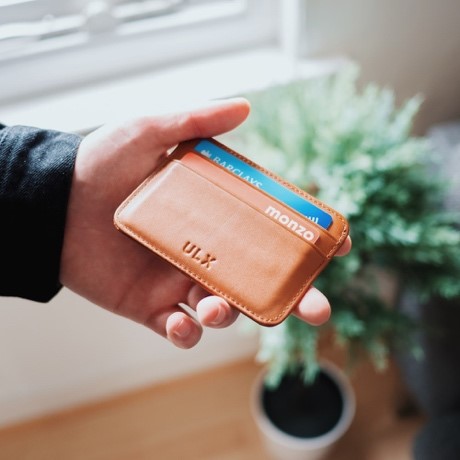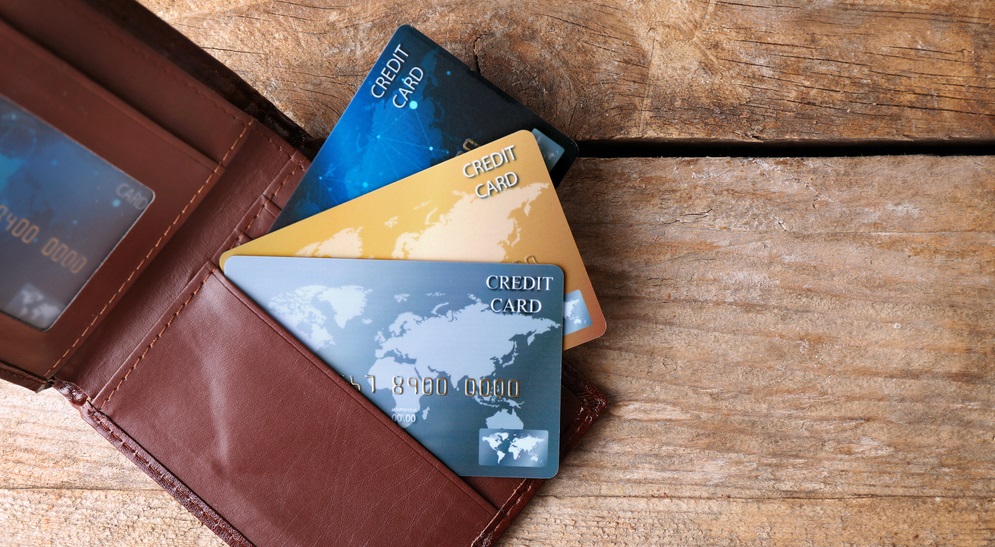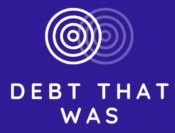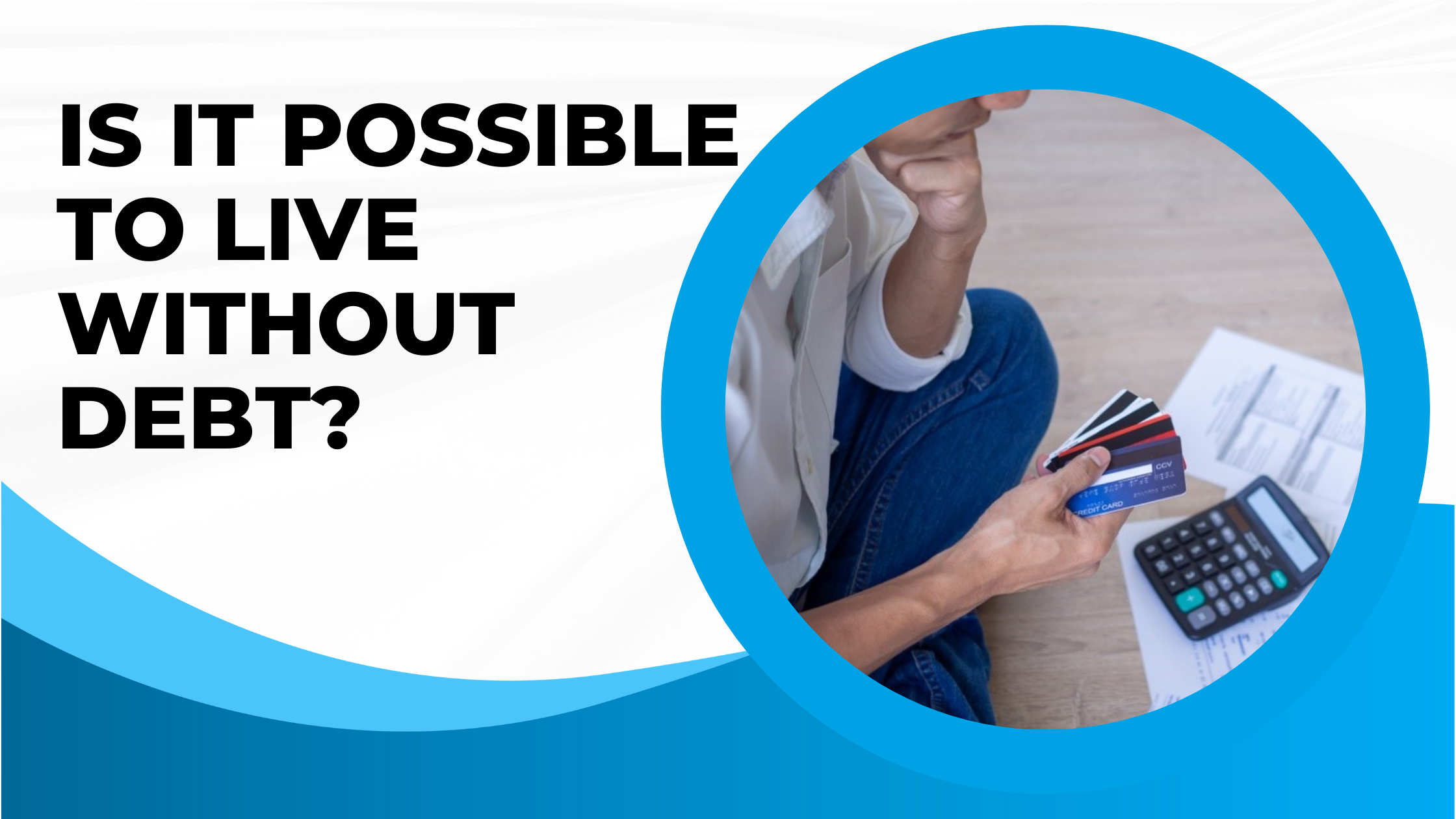Are you drowning in debt? Struggling to make ends meet and pay your outstanding bills? Living without debt may seem like an impossible dream, but it doesn’t have to be. As more and more individuals strive to become financially independent, the question arises: Is it possible to live without debt? In this article we’ll explore what living a debt-free life looks like and how one might achieve it.
The idea of being free from financial obligations is certainly appealing; however, for many people this feels unattainable due to their current situation. We’ll dive into the different strategies that can help get out of debt and stay there. Whether you’re already working on reducing your debts or are just starting out, these strategies will provide useful tips on how best to manage your finances so as not to fall back into debt again.
Finally, we’ll take a look at some of the challenges associated with becoming completely debt-free and the steps needed in order to maintain a positive cash flow. All those considering taking control over their financial future should read up on these essential tips before making any decisions about their own futures!
Table of Contents
ToggleDefinition Of Debt
Debt is a liability or obligation that one party owes to another. It’s commonly defined as an amount of money borrowed which must be repaid, usually with interest. Debt can take the form of credit cards, mortgages, student loans and other types of loans. In most cases, debt requires regular payments over time until it is fully paid off.
The type of debt you have depends on what kind of loan you took out and its terms and conditions. For example, credit card debt usually has higher interest rates than mortgage or student loan debt. This means that if you don’t pay your credit card balance in full each month, the cost will add up quickly due to compounding interest charges.
It’s important to understand how much debt you owe and when it needs to be repaid so that you can make informed financial decisions. Not paying back your debts could result in serious consequences such as legal action or damage to your credit score. So understanding your obligations is essential for maintaining good financial health.
Benefits Of Living Debt-Free
Living without debt can be a reality for many people. It may not always be easy and it will require dedication, but the rewards are worth the effort! Here are four key benefits of living debt-free:
Financial freedom: Not having to worry about making payments on loans or credit cards means more money in your pocket that you can use as you please. You’ll have peace of mind knowing there’s no looming financial burden weighing over you.
Improved credit score: As debts decrease and savings increase, your credit score is likely to improve. This can help you get better interest rates when taking out new loans or applying for a mortgage.
More control over spending habits: When you don’t have any outstanding loans, you’re free to spend responsibly, setting aside some money each month into an emergency fund or towards retirement planning. You won’t feel enslaved by high monthly payments that take up most of your income.
Stress relief: Having less financial worries leads to improved mental wellbeing since it reduces stress levels significantly. With fewer bills to pay off every month, this frees up time and energy for other activities like hobbies or catching up with friends and family.
Living without debt doesn’t mean living without luxuries either; rather, it simply requires smart budgeting decisions and discipline so that you don’t find yourself relying too heavily on credit cards or loan repayments every month. By avoiding unnecessary borrowing, eliminating expenses where possible, and creating a budget plan tailored to your own lifestyle needs – financial freedom could well become within reach!
Budgeting Strategies
Living without debt is possible, but it requires a commitment to budgeting. Those who want to reduce or avoid debt must develop strategies for controlling their spending and saving money.
One of the most important steps in pursuing financial freedom is creating a budget. A budget should track all of your income sources and expenses so you know exactly where your money is going each month. Make sure that you account for regular bills such as rent or mortgage payments, utilities, car insurance, groceries, and any other fixed costs. You’ll also need to factor in discretionary spending like dining out, entertainment, vacations, etc., which can quickly add up if not monitored carefully. If there’s extra money left after paying essential bills, put it towards an emergency fund so you’re prepared when unexpected expenses arise.
Finally, don’t forget about long-term planning; set aside some of your income every month into savings accounts or retirement funds. This will help ensure that you have money available during lean times or once you stop working altogether. In addition to reducing stress levels associated with living paycheck-to-paycheck, having an adequate amount saved will give you more control over how much debt (if any) you take on throughout life.
By taking these proactive steps today and sticking to your budget plan tomorrow, it’s entirely conceivable that one could live without ever having to worry about owing too much money at any given time.
Saving Money Tips
It’s true that living without debt is possible – but it takes a bit of effort. To get there, you’ll need to start budgeting and saving money. Here are some tips for getting started:
| Tip | Action |
|---|---|
| 1 | Track your spending so you know where your money goes each month. |
| 2 | Set financial goals and create a plan to meet them. |
| 3 | Pay yourself first by setting aside 10% or more of your income in savings every month. |
| 4 | Cut back on unnecessary expenses like takeout food or expensive subscriptions. |
| 5 | Look into ways to reduce your bills such as switching providers, bargaining with vendors, or taking advantage of discounts offered through loyalty programs. |
Tightening the purse strings can be difficult at first, but the rewards are worth it in the end. With careful planning and discipline, anyone can save up enough money to live without having to rely on debt. By following these simple steps, you will soon find yourself well on your way to becoming debt-free!
Prioritizing Expenses
Living without debt is possible, and it begins with prioritizing expenses. When you’re trying to pay off your debts or just avoid them in the first place, understanding where your money should go is key. Here are three tips that can help you get started:
- Create a budget – Determine what income comes into your household each month and decide on how much of it will be allocated for living costs such as rent/mortgage payments, utilities, groceries and other necessities. Setting aside some funds for recreational activities like dining out or date nights can also provide motivation to stick to your plan.
- Make minimum payments – As long as you make at least the minimum payment required by creditors each month, this will keep accounts current and prevent interest from accruing on outstanding balances. This can save hundreds if not thousands of dollars over time.
- Pay yourself first – Once all of life’s obligations have been met, put away an amount equivalent to 10-15% of your income into savings before spending any discretionary funds on items that aren’t essential for survival (e.g., vacations). Doing so will ensure that sufficient funds are available when unexpected financial needs arise down the road.
By following these steps, anyone can learn how to live without debt and gain greater control over their finances moving forward!
Differentiating Needs And Wants
Now that the importance of prioritizing expenses has been established, it is essential to understand how to differentiate between necessary needs and wants. In order to live without debt, distinguishing between these two concepts is paramount.
Needs are essential components for living a life with dignity; items such as housing, food and clothing fall into this category. These elements must be met in order for any individual or family unit to survive financially. When money is tight, making sure these needs are covered should always take precedence over anything else.
On the other hand, wants can often lead someone down an expensive path if not kept in check. Wants can include trips abroad, luxury electronic gadgets or designer clothes – all things which could easily end up on a credit card bill if not managed carefully. If you want to stay out of debt, focusing only on what’s truly needed as opposed to desired is key.
Staying away from excessive spending thus requires taking stock of one’s financial situation and being realistic about what constitutes a need versus a want – something that takes discipline but pays dividends when it comes time to balance the books.
Understanding Credit Scores
Understanding credit scores is an essential part of living without debt. Credit scores are used to assess a person’s ability to repay their debts and determine their eligibility for different forms of financing, such as mortgages or car loans. Knowing your score can help you better manage your finances and make informed decisions about taking on additional debt. Here’s a quick look at what goes into determining your credit score:
| Factor | Weighting |
|---|---|
| Payment history | 35% |
| Amounts owed | 30% |
| Length of credit history | 15% |
| New credit | 10% |
| Types of credit used | 10% |
Your payment history accounts for the largest portion of your credit score — about one-third. This includes any late payments, delinquencies, bankruptcies and foreclosures that have been reported by lenders in the past seven years. The amounts owed factor is also important; it refers to how much money you owe compared to your total available credit limit. A longer length of credit history may be beneficial, but new lines of credit and types of loan products (such as auto loans versus revolving cards) will also influence the calculation.
The key takeaway here is that maintaining good financial habits across all these categories can help boost your score over time. Keeping up with timely payments and managing balances carefully not only helps demonstrate responsible borrowing behavior but can ultimately save you from paying higher interest rates in future transactions. It pays off to pay attention to this critical aspect of personal finance management!
Managing Credit Card Usage
Living without debt is possible. The key to achieving this goal lies in the way one manages their credit card usage. It’s essential to use a credit card responsibly, as it can become an obstacle on the path to financial freedom if not managed properly.
To begin with, choose a card that has low fees and interest rates. Make sure you are aware of any annual or late payment fees associated with your chosen card – these charges can add up quickly and sabotage efforts to pay off your balance each month. Additionally, aim for cards with rewards programs such as cashback or points systems so that you get something back from using them.
Another important factor when managing credit cards is understanding how much you can realistically afford to spend each month. Set yourself a budget by monitoring regular expenses and creating goals for paying off the monthly balance within a certain time frame – doing this will help prevent overspending and build good habits around how you manage money day-to-day. Finally, avoid impulse purchases no matter how tempting they might be; wait at least 24 hours before buying anything new and consider whether it’s really necessary before making the purchase.
Managing credit cards effectively requires discipline but following these tips will lead to better spending habits which, over time, can help reduce overall debt levels significantly – allowing individuals to achieve financial freedom faster than ever before!
Developing A Spending Plan
Living without debt is possible, but it requires discipline and planning. Developing a spending plan is the key to a debt-free life. There are four essential steps:
- Make sure you know your current financial situation – track all of your income sources and expenses.
- Determine what type of lifestyle you want to live in accordance with your financial goals.
- Set realistic budget limits for each expense category and stick to them as closely as possible.
- Track your progress regularly so that you can make adjustments when needed.
Creating a budget will help ensure that all of your bills get paid on time every month while still allowing some room for fun activities and occasional treats like dining out or taking vacations. To stay within budget limits, only spend money on things that are absolutely necessary for living, such as food and housing costs; avoid luxury items unless they are part of an overall plan to reach a larger goal such as saving up for retirement or buying a car someday soon. Additionally, try not to use credit cards unless absolutely necessary because interest rates on these types of loans can quickly build up if payments aren’t made promptly each month. Lastly, set aside extra funds whenever possible so that unexpected expenses don’t derail any hard work already put into reaching long-term goals or paying down existing debts faster than expected.
With careful consideration and realistic expectations regarding finances, it is definitely achievable to live free from debt while still having enjoyable experiences along the way!
Generating Additional Income
Ah, the elusive dream of living a debt-free life. Is it really possible? One would think so – if only you had more money coming in than out! But how is this achievable without winning the lottery or inheriting a fortune? Well, there are numerous ways to generate additional income and become financially independent.
Let’s start with side hustles; those part-time gigs that can help turn your financial situation around. From freelancing to ride sharing and dog walking, there are many opportunities available for people looking to bring extra cash into their lives. With some hard work and dedication, these jobs could be an excellent way to increase your monthly earnings and make progress towards becoming debt free.
Finally, investing can also be a great way of generating more money over time. Whether it’s stocks and shares or other forms of investment such as property or cryptocurrency, putting away small amounts each month can result in significant returns when they mature. However, while investments may provide good long-term benefits, individuals should always do their research before taking any risks with their finances.
So whether you’re looking for short-term solutions or building for the future, increasing your income streams is an effective route to take on the path to financial freedom. With careful planning and discipline along the way, living without debt might not be just another pipe dream after all!
Negotiating With Creditors
Fortunately, even if you cannot live without debt entirely, there are ways to manage your debts responsibly. Negotiating with creditors is one option available to those struggling to pay off their debt.
By negotiating with a creditor or collection agency, it may be possible to lower the interest rate on a loan or credit card balance and possibly reduce the total amount due. This can make repaying the debt more manageable and help keep future payments affordable. Additionally, some lenders offer hardship programs that can provide temporary relief from high-interest rates for borrowers who have fallen behind on their payments.
However, when engaging in negotiations with creditors, it’s important to remember that they’re not obligated to accept any offers made by borrowers. It’s also helpful to research what kind of deals other people have been able to get from similar situations so you know what you should ask for as well as how far you should push for something better. Being persistent during these conversations can yield positive results but do not become overly aggressive or threatening; this will only hurt your chances of getting the outcome desired.
In short, understanding how to negotiate with creditors and making sure realistic expectations are set before entering into talks can result in significant savings while helping manage existing debts successfully over time.
Seeking Professional Help
If you’re struggling to manage your debt, it’s best to seek help from a professional. A financial advisor can provide tailored advice specific to your situation and help create an action plan that works for you. Financial advisors have access to a wide range of services and products, as well as expert knowledge on how to use them in the most effective way.
Money counselors or credit counselors may also be able to assist if your debts are overwhelming. These professionals work with creditors and lenders on behalf of their clients to negotiate payment plans and try to reduce interest rates where possible. They can often provide additional support by helping with budgeting techniques, reducing expenses, improving cash flow management and providing general money guidance when needed.
It is important not to ignore debt problems but rather take proactive steps towards regaining control of one’s finances. Professional assistance will make all the difference in achieving this goal – allowing you to get back on track faster than trying it alone.
Utilizing Financial Resources
According to a recent survey, 43% of adults in the United States are living paycheck-to-paycheck. This statistic is indicative of how difficult it can be for individuals and families to remain financially secure without diligently utilizing financial resources. Fortunately, there are several ways that people can take control of their finances and avoid debt altogether.
The first step towards achieving financial freedom is creating a budget. By carefully tracking income and expenses, calculating net worth, setting realistic goals, and making necessary adjustments when needed, individuals can gain insight into their financial situation as well as develop an action plan for improving it. It’s also important to understand where money should be allocated before any major purchases or investments are made.
Another way to increase savings is by reducing day-to-day costs such as groceries, utilities, transportation, entertainment, etc., while using cash back credit cards wisely. Additionally, investing in stocks or mutual funds can help boost long term wealth; however these activities should only be considered after all other debts have been paid off—including student loans and mortgages—in order to maximize returns on investment without taking unnecessary risks with one’s finances.
By following this advice and remaining disciplined with spending habits, it is possible for anyone to lead a debt free lifestyle if they so choose—provided that they possess sufficient knowledge about personal finance management.
Establishing Financial Goals
Living without debt is possible, but it requires setting and focusing on financial goals. Achieving these goals takes commitment and dedication to good financial practices. To get started, here’s a look at four key components of successful goal setting:
| Step | Process |
|---|---|
| 1 | Set Clear Goals |
| 2 | Develop Strategies for Achieving Your Goals |
| 3 | Monitor Progress Toward Your Goals |
| 4 | Make Adjustments When Necessary |
The first step in establishing financial goals is to set clear objectives. You should identify what you want to accomplish with your money over the short-term and long-term. Think about how much money you need or want to save each month, as well as any other specific goals such as buying a house or paying off student loans. It’s important to clearly define your goals so that you can measure progress along the way.
Once you have established your goals, it’s time to create strategies for achieving them. Consider developing a budget that outlines all of your expenses and income sources, as well as savings plans for reaching your desired outcomes. Additionally, explore different investment options if applicable that may help accelerate timelines towards success. This can include stocks, bonds, mutual funds, real estate investments, etc., depending on individual risk tolerance levels and preferences.
Finally, tracking progress toward your goals is essential in order to stay motivated and accountable while maintaining momentum going forward. Regularly review account balances and spending habits throughout the process in order to ensure everything is on track according to plan. If adjustments are necessary due to unexpected changes or circumstances in life (e.g., job loss), then make sure they happen promptly before further delaying progress towards achieving milestones. With focus and determination living without debt is entirely achievable!
Adopting A Positive Attitude
Living without debt is possible. It takes commitment, discipline and a positive attitude to make it work. The first step in achieving this goal is developing a realistic budget. This includes setting aside money each month for both expected and unexpected expenses.
Adopting a positive attitude helps one stay on track with the new budget. One must believe that living without debt can be achieved and remain committed to making it happen. Having an optimistic outlook makes it easier to stick with the plan when times get tough or there’s not enough money for something desired.
Another way to maintain a positive mindset about living without debt is by rewarding oneself for small successes along the way. Achieving financial goals should never go unrecognized, no matter how small they may seem at the time. Celebrating these milestones keeps motivation high and reinforces the idea that being free from debt is achievable.
It isn’t always easy, but with some hard work and dedication, anyone can live without debt and have more control over their finances. There are many rewards associated with taking this path, including greater security, peace of mind and increased financial freedom—all worth striving for!
Conclusion
Living without debt can be daunting, but it’s definitely not impossible. By taking the time to budget, prioritize expenses and save money, anyone can reduce their amount of debt and eventually live a life free from its burden. With financial resources readily available, there’s no excuse for not researching ways to properly manage your finances.
By establishing realistic goals and adopting a positive attitude towards eliminating debts, you’ll find yourself on the path to success in no time! As they say: “Rome wasn’t built in a day,” so don’t expect your financial journey to be quick or easy; take small steps each day that will lead you closer to achieving a debt-free lifestyle.
Ultimately, living without debt is possible if you’re willing to put in the effort required and make smart decisions about how you spend your money. So why wait? Take control of your finances today, and get ready to enjoy all the benefits that come with being out of debt!



